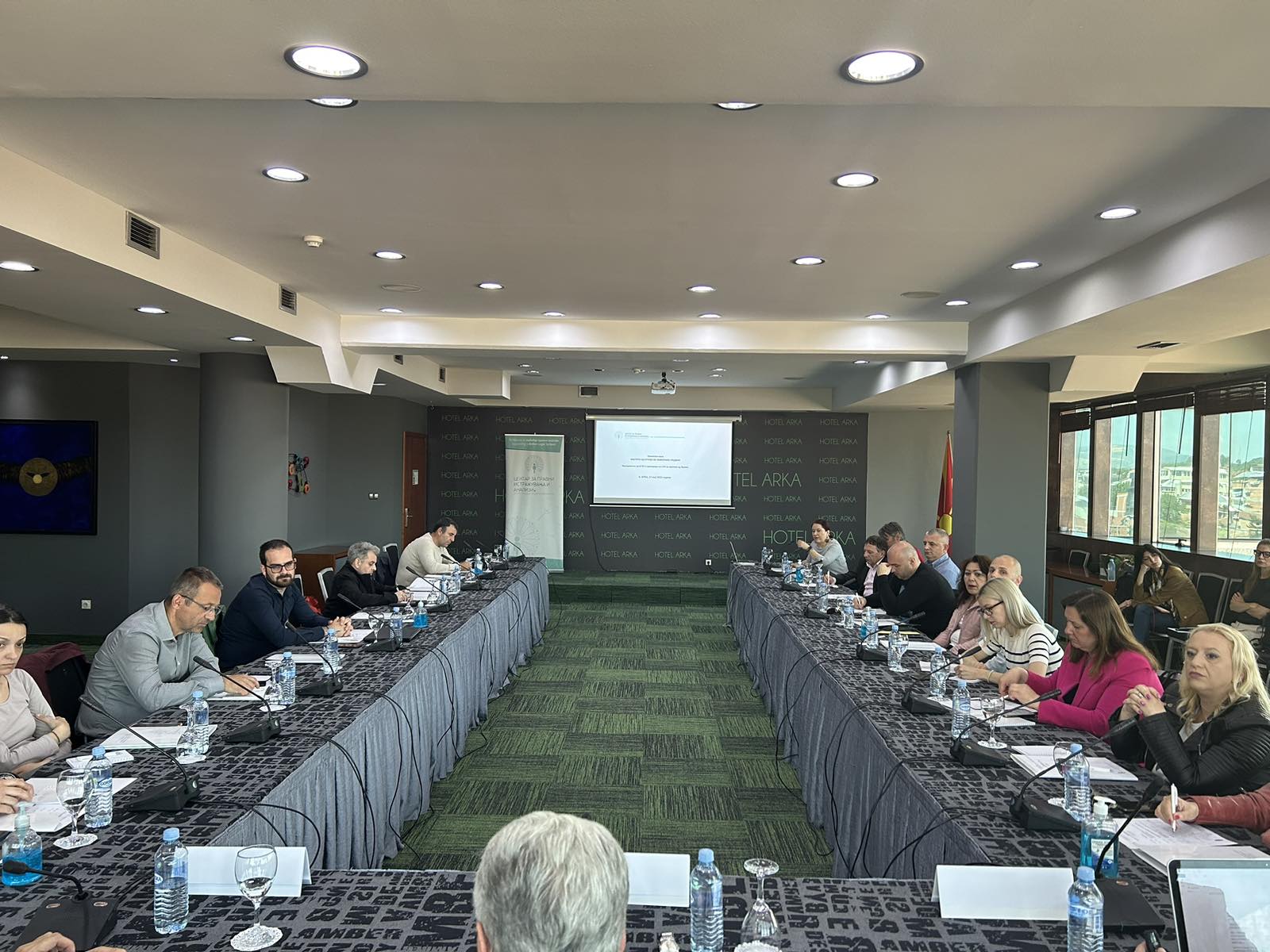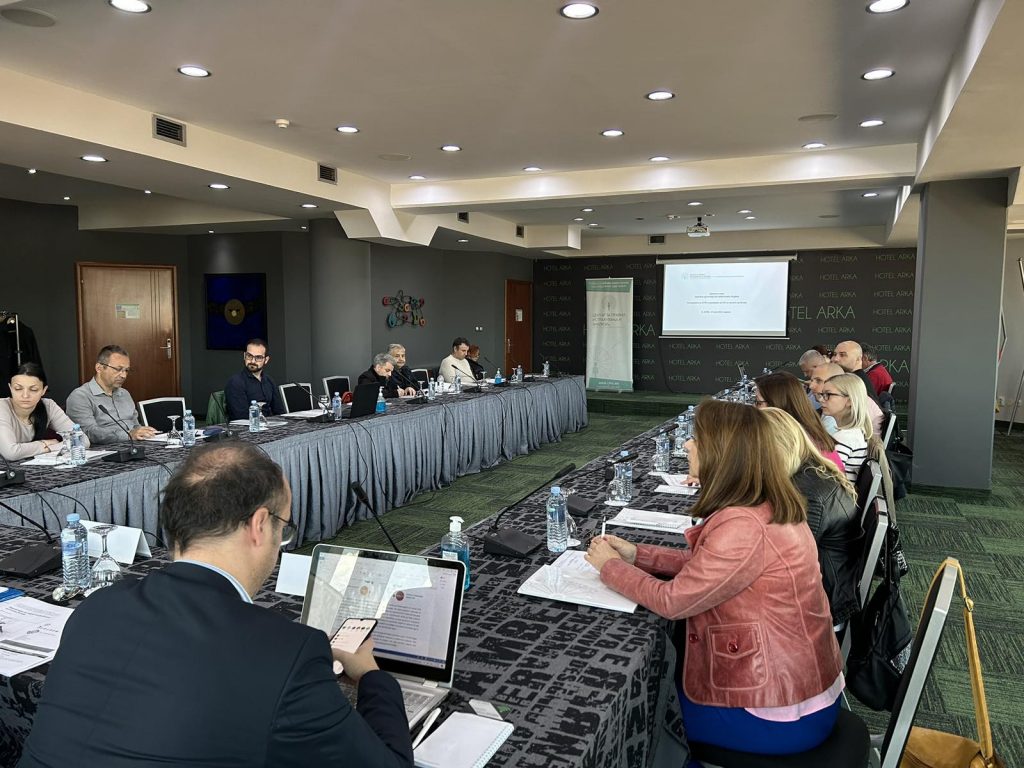
On 17.05.2023 Center for Legal Research and Analysis within the project “Supporting quality and accountability in Macedonian justice sector”, organized a round table on the topic – Environmental noise protection. The project is the result of continuous financial support from the Embassy of the Kingdom of the Netherlands in the Republic of North Macedonia.
The event was attended by representatives from the Ministry for Environmental Protection and Spatial Planning, the State’s environmental inspectorate, the Ministry of Internal Affairs, the Macedonian Academy of Sciences and Arts, municipalities, and non-governmental organizations that are concerned and deal with this issue.
Nikola Jovanovski, program manager of CLRA, in his welcoming address, thanked the participants for their great interest in attending the event. He noted that the idea for this round table arose from already analyzed judgments within the same project for the Justice Observers website. He emphasized that noise and the consequences of long-term exposure to it should be taken seriously and that it is about time to encourage some changes. Noise has a negative effect on people, but also on animal and plants. People who are exposed to noise for a long period are prone to increased stress and anxiety, and the consequences for hearing and their overall state of health are also evident.
At the round table, Academic Vlado Kambovski also had his presentation which he started with a comment on the basic living conditions, especially in the city of Skopje, which, according to him, have been brought to a minimum due to the uncontrolled noise coming from the night clubs, cafes, industry, and of course also from the traffic. He emphasized that our Law of protection against environmental noise is overcrowded and quite unclear, which makes it difficult to apply it in practice. Unlike our law, which resembles a 30-page project, the laws of the countries of the region, e.g. Serbia and Slovenia are not very extensive, but they have short, clear, and precise provisions that are easily applied in practice. In the neighboring countries, the Ministry of the Environment has much stronger powers and institutions, whose primary task is noise control and its reduction within normal limits. In our country, market inspection and the Ministry of the Interior have such powers, but both bodies have other tasks on their list, so noise is not their priority.
Finally, Academic Kambovski said that it is necessary to strengthen the Ministry of Environment and, following the example of Serbia and Croatia, to establish inspectorates for environmental protection with precise and broad competencies.
Legal expert Zharko Aleksov began his presentation with the message, “We are all consciously and unconsciously surrounded by noise”. He cited WHO interpretations that noise is the second biggest environmental cause of health problems, after the impact of air pollution. Aleksov presented the values of noise in decibels (dB) and how each of them affects man and his organism. In addition, he spoke about the practice of the European Court of Human Rights and judgments related to noise protection. According to the latest figures, there are more than 300 judgments related to environmental protection. Through creative interpretation, the court finds ways to apply environmental protection articles even though it is not expressly recognized as a right. As an example, he analyzed the Oluić judgment against Croatia, which you can read more about at the link: https://justiceobservers.org/article/79316/63647/188
After the presentations of the speakers, a large part of the attendees started a discussion and shared some of the problems faced by the institutions where they come from. For them, the biggest problem is the non-functioning of the system, to few sanctions for violators, and how they circumvent punishments. They demanded changes to the Law of protection against environmental noise, the creation of inspectorates for noise control, the dislocation of night clubs, greater care for the nature that is being destroyed by ATV vehicles on organized mountain tours, and greater sanctions and bans on activities for violators.


